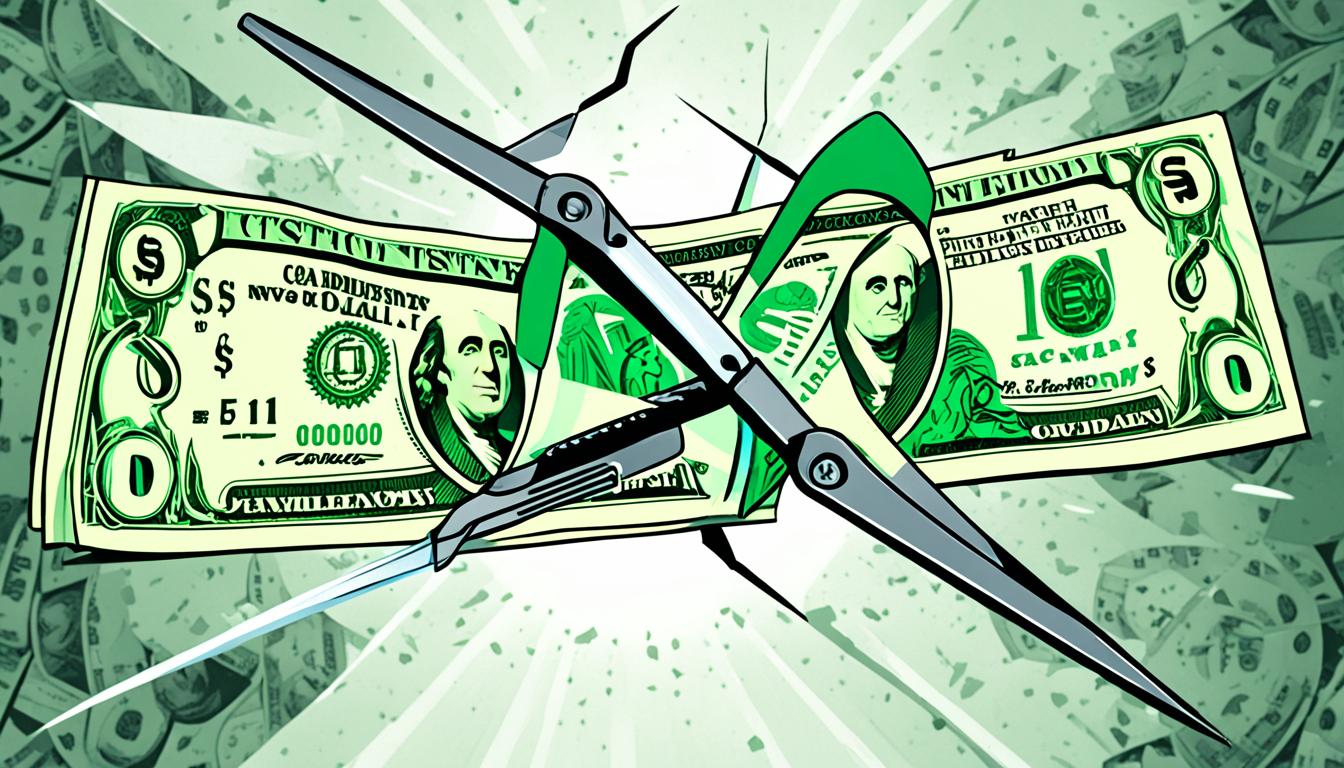Living paycheck to paycheck can make budgeting feel tough, but it’s possible to take control of your finances. Start by tracking your expenses to see where your money goes, then cut back on non-essentials like dining out or subscriptions. Focus on creating a simple budget that covers necessary costs and sets aside small savings or debt payments. Staying consistent with these steps will gradually improve your financial stability and confidence—continue exploring for more effective strategies.
Key Takeaways
- Track all expenses to identify essential vs. non-essential spending and find areas to cut back.
- Prioritize building a small emergency fund even with limited income to prevent financial crises.
- Set realistic, achievable budgeting goals focusing on necessary expenses and debt repayment.
- Automate savings and payments to ensure consistent contributions despite paycheck-to-paycheck cycles.
- Practice financial discipline by minimizing unnecessary expenses and celebrating small savings milestones.

Are you tired of feeling like you’re barely making ends meet each month? Living paycheck to paycheck can be overwhelming, leaving you with little room for savings or unexpected expenses. But even with a tight budget, you can take steps toward financial stability. The first move is to build an emergency fund, no matter how small. An emergency fund acts as a safety net, helping you cover unforeseen costs like medical bills, car repairs, or sudden job loss. It’s tempting to think you don’t have enough money to save, but starting small—perhaps just a few dollars each week—can gradually grow your safety cushion. Over time, this fund reduces your anxiety because you won’t have to rely on credit or loans when emergencies arise.
Start small with an emergency fund; even a few dollars weekly can build financial security over time.
While setting aside money for emergencies seems essential, it’s equally important to focus on debt reduction. High-interest debts, like credit card balances, can drain your resources and make it harder to save. Making a plan to pay down these debts should be a priority. You might consider the snowball method—paying off the smallest balances first to gain momentum—or the avalanche method—targeting the highest interest rates to save on costs. Whichever approach you choose, committing to regular payments helps chip away at what you owe, freeing up funds over time. As your debt decreases, you’ll find it easier to allocate money toward your emergency fund and other financial goals.
To make this manageable, review your expenses carefully. Track your spending for a month to identify non-essential items you can cut back on, like dining out or subscriptions you no longer use. Redirect those savings toward your debt and emergency fund. Creating a simple budget that prioritizes necessary expenses—rent, utilities, groceries—allows you to see exactly where your money goes. Once essentials are covered, allocate a fixed amount toward debt reduction and savings each month, even if it’s a small sum. Consistency is key; over time, those small contributions add up. Recognizing the importance of recognizing patterns in recurring numbers can also motivate you to stay committed to your financial goals.
Living paycheck to paycheck doesn’t mean you’re doomed financially. Small, deliberate steps toward building emergency funds and reducing debts can make a difference. It’s about making the most of what you have, staying disciplined, and gradually shifting your financial habits. Remember, every dollar you save or pay toward debt is a step closer to stability. Patience and persistence will help you create a more secure financial future, even when it feels like your income is tight.
Frequently Asked Questions
How Can I Start Saving With Inconsistent Income?
To start saving with inconsistent income, you should focus on flexible savings strategies that adapt to income fluctuation. Track your expenses closely and set aside a small, manageable amount during high-income months. During lower-income periods, prioritize essentials and pause extra savings. Automate deposits when possible, and build an emergency fund to cover unpredictable expenses. Consistency over time, even in small amounts, helps you establish a steady savings habit.
What Are Quick Budgeting Tips for Tight Finances?
To manage tight finances, start with frugal meal planning to cut food costs and use expense tracking apps to monitor your spending. Prioritize essential expenses and cut back on non-essentials. Set small, achievable savings goals and review your expenses regularly. These quick tips help you stay on top of your finances, even when your income fluctuates, making it easier to stay within your budget and build savings over time.
How Do I Prioritize Expenses on a Limited Budget?
To prioritize expenses on a limited budget, start with expense tracking to see where your money goes. Cover essential needs first, like housing and food. Then, allocate funds toward debt reduction to reduce interest and stress. Cut non-essentials and set small savings goals. This way, you guarantee your critical expenses are met while gradually improving your financial situation, even with tight finances.
Can I Still Build an Emergency Fund Living Paycheck to Paycheck?
Like planting seeds in a busy garden, you can build an emergency fund while paycheck management is tight. Start small—set aside a tiny portion from each paycheck, even if it’s just a few dollars. Over time, these savings grow, creating a safety net. Consistency matters more than size, so keep at it. With patience, your emergency fund will flourish, providing peace of mind during tough times.
What Resources Are Available for Financial Assistance?
You can access community resources and government aid to help manage your finances. Local charities, food banks, and community centers often provide support like food assistance or emergency grants. Additionally, government programs such as SNAP, Medicaid, or temporary financial assistance can offer essential help during tough times. Reach out to local social services or visit official websites to find programs tailored to your needs, ensuring you get the support you qualify for.
Conclusion
Remember, even if your paycheck feels like it’s disappearing faster than you can blink, small steps can make a huge difference. Stick to a budget, prioritize essentials, and track every dollar—you’ll start gaining control over your money. It might seem tough at first, but this effort can transform your financial future from a sinking ship into a steady, sailable boat. Stay committed; your financial freedom is worth fighting for—it’s closer than you think!









